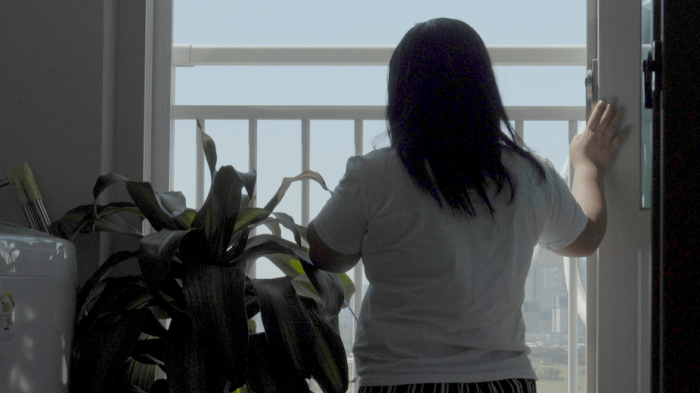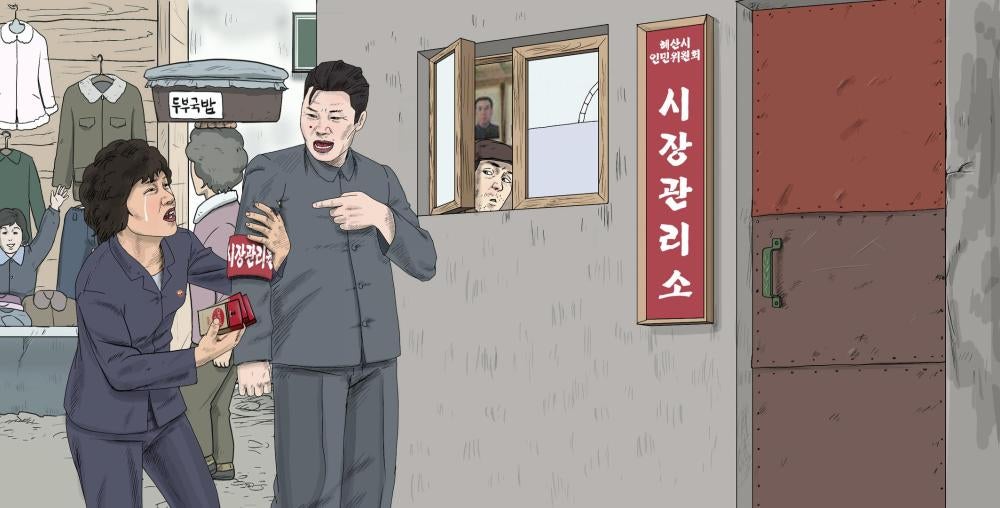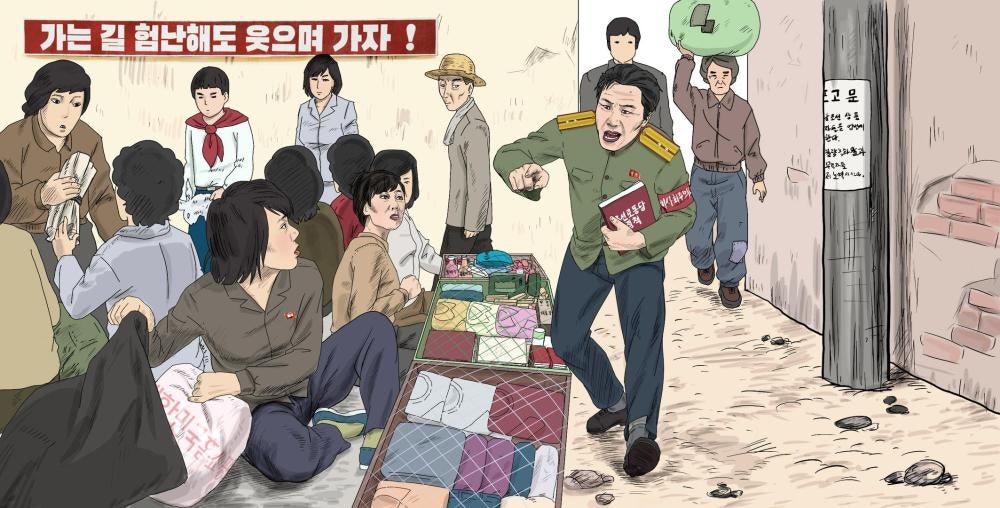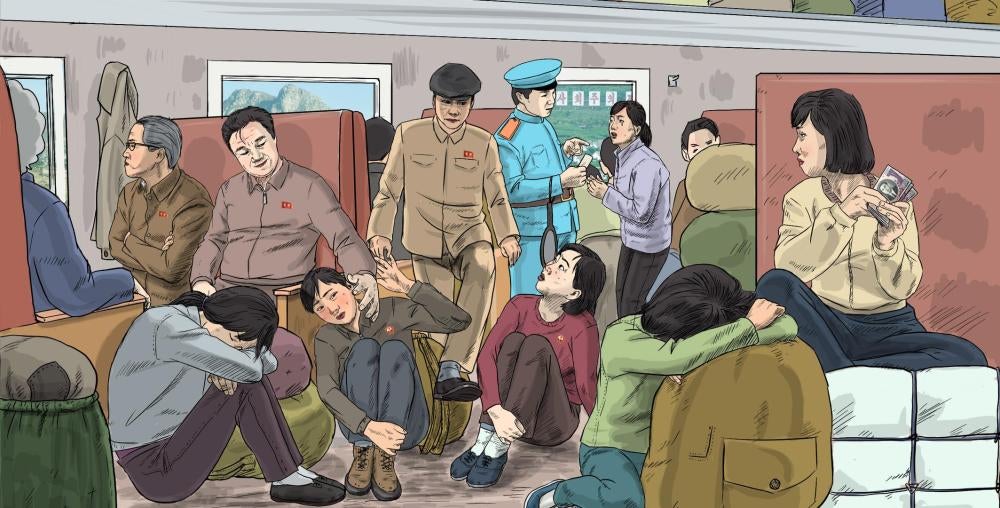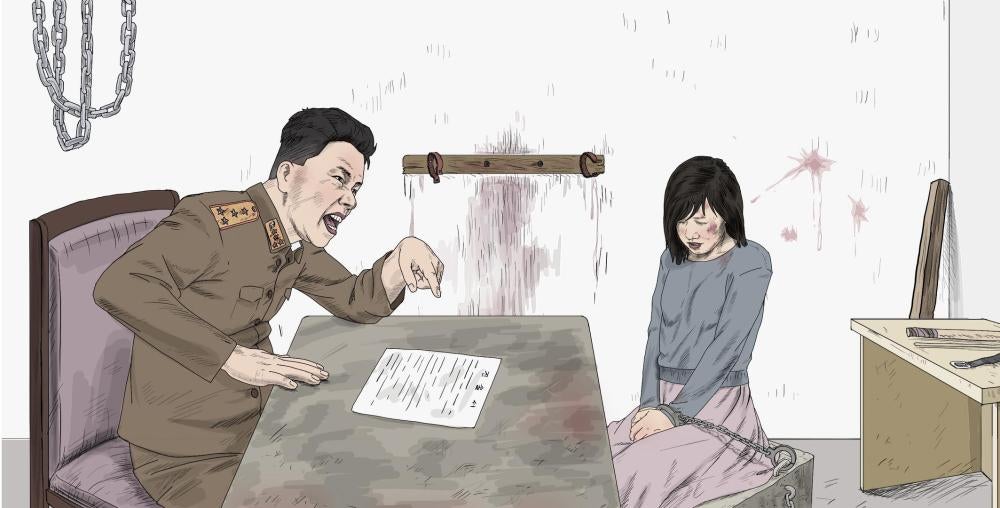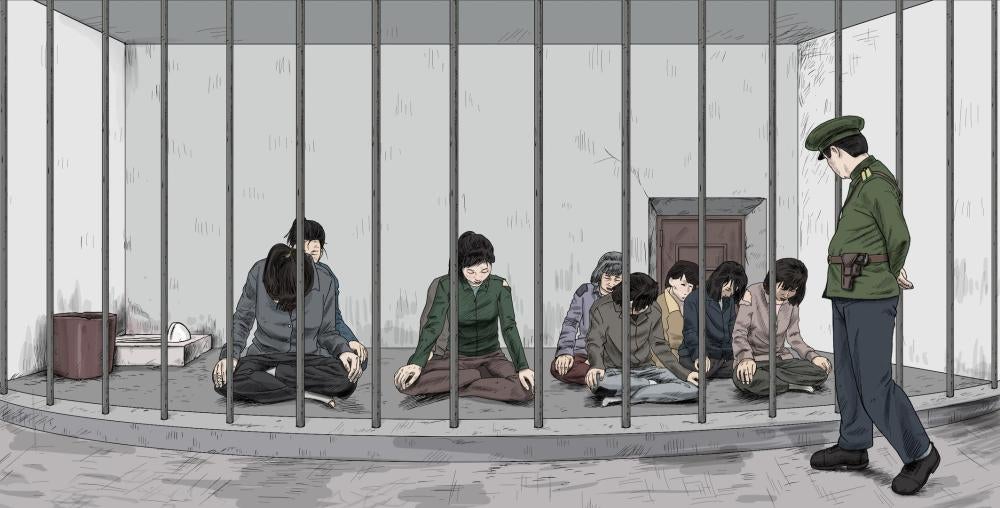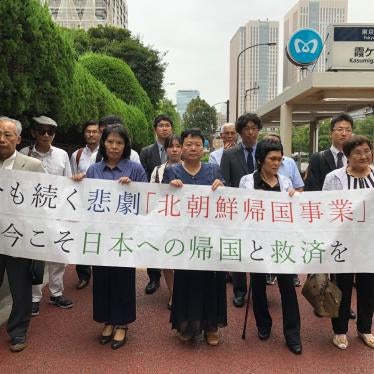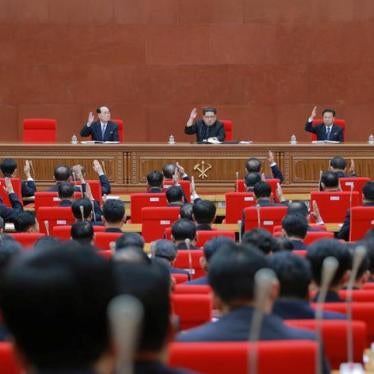North Korean officials commit sexual violence with little concern for the consequences, Human Rights Watch said in a report released today. The government fails to investigate and prosecute complaints, or to provide protection and services to victims, and even asserts that the country is implausibly free of sexism or sexual violence.
The 86-page report, “‘You Cry at Night, but Don’t Know Why’: Sexual Violence against Women in North Korea,” documents unwanted sexual contact and violence that is so common in North Korea it has come to be accepted as part of ordinary life. Many North Koreans told Human Rights Watch that when an official in a position of power “picks” a woman she has no choice but to comply with any demands he makes, whether for sex, money, or other favors. Women interviewed said that the sexual predators include high-ranking party officials, prison and detention facility guards and interrogators, police and secret police officials, prosecutors, and soldiers. Fearful of social disgrace and retaliation, and with few, if any, avenues for redress, North Korean women rarely report abuse.
“Sexual violence in North Korea is an open, unaddressed, and widely tolerated secret,” said Kenneth Roth, Human Rights Watch’s executive director. “North Korean woman would probably say ‘Me Too’ if they thought there was any way to obtain justice, but their voices are silenced in Kim Jong Un’s dictatorship.”
Human Rights Watch interviewed 54 North Koreans who had left the country after 2011, when the current leader, Kim Jong Un, rose to power, and 8 former North Korean officials who fled the country. Eight former detainees or prisoners said they experienced a combination of sexual violence, verbal harassment, and humiliating treatment by investigators, detention facility personnel, or prison guards who belong to the police or the secret police (bowiseong). Twenty-one women traders said they experienced sexual violence and unwanted sexual advances by police or other officials as they traveled for their work.
Since the late 1990s, many married women, who were not obliged to attend a government-established workplace, became traders and the main breadwinners for their families. But their work has exposed them to the risk of sexual violence in a country where gender discrimination and the subordination of women are pervasive.
“On the days they felt like it, market guards or police officials could ask me to follow them to an empty room outside the market, or some other place they’d pick,” said Oh Jung Hee, a former trader in her 40s from Ryanggang province who left the country in 2014 and described being sexually assaulted many times. “They consider us [sex] toys. We [women] are at the mercy of men.” She said it was so common that the men don’t think what they are doing is wrong and that women have come to accept it, but “sometimes, out of nowhere, you cry at night and don’t know why.”
Human Rights Watch said that contributing factors include deeply embedded patterns of gender inequality and a lack of sex education or awareness about sexual violence. Other factors include the unchecked abuse of power, corruption exacerbated by socioeconomic changes, lack of rule of law, stigma toward victims of sexual violence, and lack of social support and legal services.
Yoon Mi Hwa, a former trader in her 30s from North Hamgyong province who escaped North Korea in 2014, described what happened when she was detained in in the Chongjin jipkyulso (holding center) in 2009, after a previous attempt to flee to China:
Every night some woman would be forced to leave with a guard and be raped. There was an especially horrible police guard, who, I later learned, was famous for his cruelty. Every day, whenever new inmates arrived, he’d find a reason to violently beat up one of the detainees, so everybody would know that you must obey him.
She added:
Click, click, click was the most horrible sound I ever heard. It was the sound of the key of the cell of our prison room opening. Every night a prison guard would open the cell. I stood still quietly, acting like I didn’t notice, hoping it wouldn’t be me the one to have to follow the guard, hoping it wouldn’t be him.
Park Young Hee, a former farmer in her 40s also from Ryanggang province who left North Korea for the second time in 2011, was forced back to North Korea from China in the spring of 2010, after her first attempt to flee. After being released by the secret police (bowiseong) and put in the hands of the local police near Musan city in North Hamgyong province, the officer questioning her in a pretrial detention facility nearby touched her and penetrated her several times with his fingers. She said he asked her repeatedly about the sexual relations she had with the Chinese man to whom she had been sold to while in China. She told Human Rights Watch, “My life was in his hands, so I did everything he wanted and told him everything he asked. How could I do anything else? … Everything we do in North Korea can be considered illegal, so everything can depend on the perception or attitude of who is looking into your life.”
The North Korean government should acknowledge the problem of sexual violence, ensure that police, prosecutors, and courts treat sexual violence as a crime, and promptly investigate and prosecute allegations when appropriate, Human Rights Watch said. The government should establish reproductive health and sexual education programs, and provide services for survivors, including counseling, medical and legal assistance, and programs to help women to overcome stigma.
A 2014 United Nations Commission of Inquiry on human rights in the Democratic People’s Republic of Korea also concluded that systematic, widespread, and gross human rights violations committed by the North Korean government constituted crimes against humanity. These included forced abortion, rape, and other sexual violence, as well as murder, imprisonment, enslavement, and torture of North Koreans in prison or detention. The commission said witnesses revealed “violence against women is not limited to the home, and that it is common to see women being beaten and sexually assaulted in public.”
“North Korean women should not have to risk being raped by government officials or workers when they leave their homes to earn money to feed their families,” Roth said. “Kim Jong Un and his government should acknowledge the problem and take urgent steps to protect women and ensure justice for survivors of sexual violence.”
